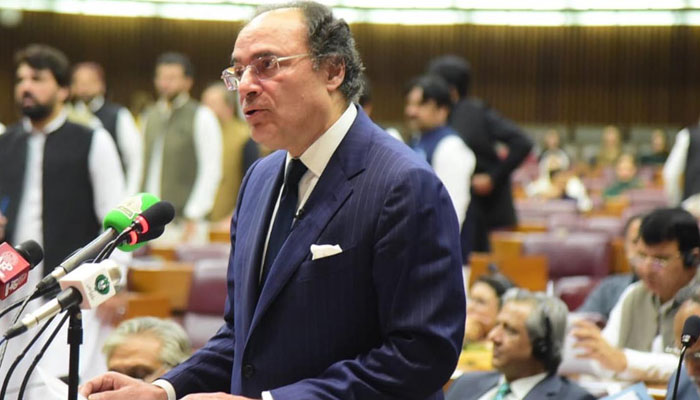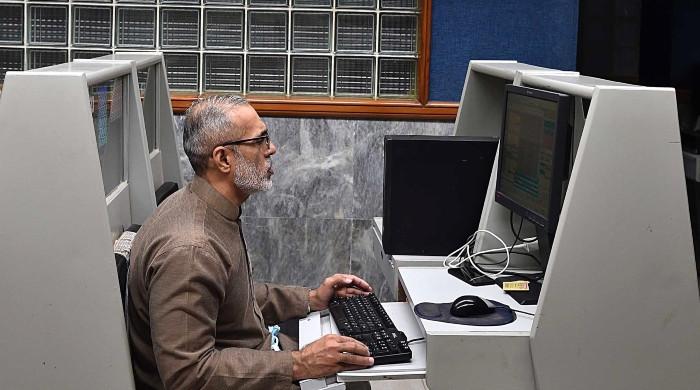Pakistan must shore up tax revenue to break free from IMF cycle: minister
“We have to start showing, start delivering, in the next two to three months,” says Aurangzeb
July 08, 2024

- Minister says he is "relatively confident" of securing IMF package.
- Says Pakistan has to start showing, delivering in next 2-3 months.
- Slams reputation for corruption at the Federal Board of Revenue.
ISLAMABAD: Minister for Finance Muhammad Aurangzeb warned on Sunday that Pakistan will continue to seek International Monetary Fund (IMF) bailouts if it fails to boost tax revenue.
The finance minister said that he was "relatively confident" of reaching a staff-level agreement with the global lender this month for an estimated loan of $6-$8 billion.
"But it will not be our last fund programme if we don’t bring our tax revenues up," said the finance minister while speaking during an interview with Financial Times.
The federal government presented the tax-loaded Rs18.877 trillion budget for the fiscal year 2024-25 (FY25) last month, aimed at shoring up public revenue and satisfying the IMF, which has repeatedly demanded improved tax collection.
The budget aims to raise Rs13 trillion by next July, a roughly 40% increase from the current financial year, to bring down a ruinous debt burden that has caused 57% of government revenue to be swallowed by interest payments.
The tax rises will mostly fall on salaried workers, who comprise a relatively small part of Pakistan’s mostly informal economy, as well as some retail and export businesses. The budget also threatened punitive measures for tax avoiders, including restrictions on mobile phones, gas and electricity access and the ability to fly abroad.
“We do not have five years for our programme,” Aurangzeb warned in the wake of a budget that seeks to reset the country’s ailing economy. “We have to start showing, start delivering, in the next two to three months,” he said.
“The direction of travel is positive, and investors are showing confidence in the stock market,” said Aurangzeb, referring to the KSE-100 index, which is one of Asia’s best-performing year to date. Still, the government faces a considerable challenge in putting Pakistan on the path for longer-term growth and debt sustainability, he said.
Pakistan’s debt has soared since the mid-2000s, as authorities failed to invest a gusher of loans from international bondholders and countries including China and Gulf nations into productive, export-oriented sectors. Instead, the country remains reliant on imports, forcing Islamabad to borrow to pay off existing and accumulating debts, Aurangzeb said.
“We need to create the capacity to repay loans,” the finance minister said. “As long as this economy stays import-based, what happens is the moment it heats up, “we run out of dollars [and] we have to go back to the lender of last resort on our knees.”
Prime Minister Shehbaz Sharif has travelled recently to Saudi Arabia, the United Arab Emirates and China to solicit investments on top of the IMF programme, which would be Pakistan’s 24th with the multilateral lender.
“It’s about time we get real,” the finance minister said, pointing to Gulf investors’ demands of equity and board seats. “The ball is in our court to provide bankable, investable projects.”
He also slammed a reputation for corruption at the Federal Board of Revenue. “People don’t want to deal with the tax authority because of corruption, because of harassment, because of people asking for speed money, facilitation money,” Aurangzeb said. “That’s not sustainable.”
“I empathise with the pain people will feel, I was one of the highest taxpayers, at least in the banking sector,” he added.











